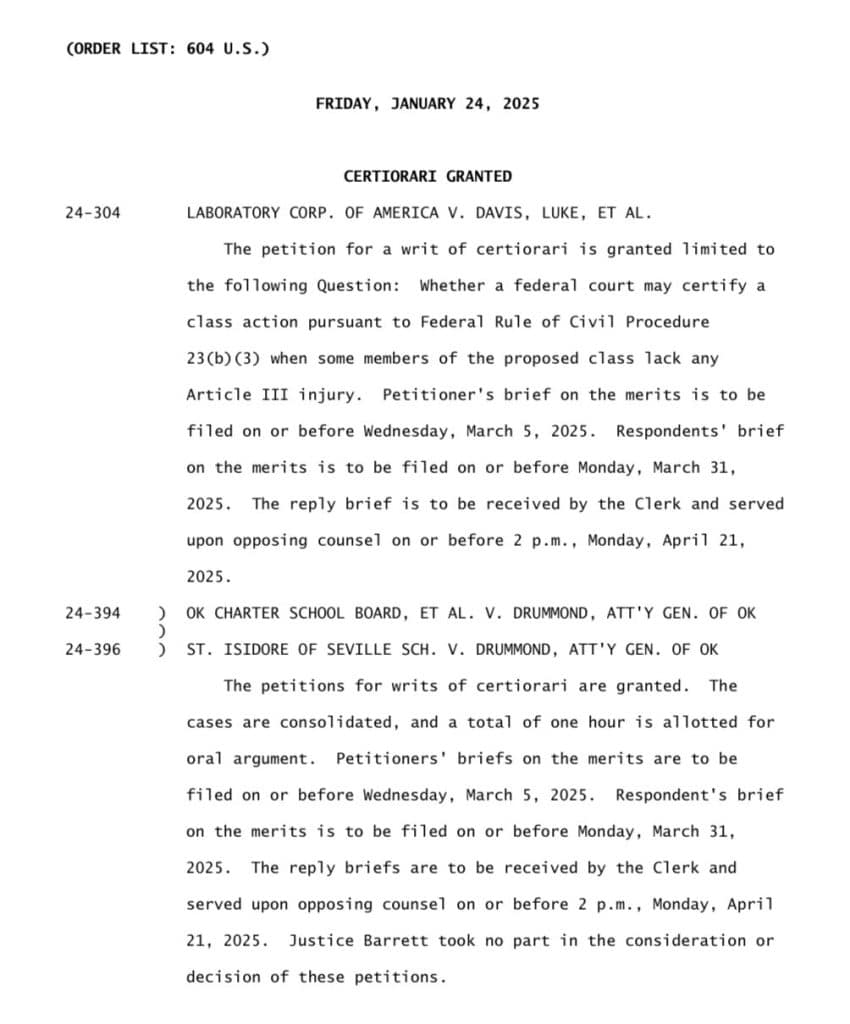Overview:
The U.S. Supreme Court will decide whether Oklahoma can establish the nation's first taxpayer-funded religious charter school.
On Friday, the U.S. Supreme Court agreed to review a proposal from two Catholic dioceses to establish the country’s first taxpayer-funded religious charter school. The case, originating in Oklahoma, has raised fundamental questions about the separation of church and state.
The legal dispute centers on St. Isidore of Seville Catholic Virtual School, a collaborative initiative by the Catholic Archdiocese of Oklahoma City and the Diocese of Tulsa. The proposed school aims to offer virtual learning for students from kindergarten through high school. However, a lower court blocked its creation, ruling that its funding structure violated the First Amendment’s prohibition on government endorsement of religion.
The Supreme Court’s decision to take up the case follows an appeal by a state school board and the organizers of St. Isidore, challenging the lower court’s ruling.

Legal and Political Backing
Supporters of St. Isidore argue that recent Supreme Court rulings provide a legal foundation for taxpayer-funded religious schools. In December 2022, then-Oklahoma Attorney General John O’Connor, a Republican, issued a legal opinion stating that the court’s decisions opened the door for such initiatives. Governor Kevin Stitt, also a Republican, embraced this position, signaling strong political support within the state’s leadership.
In Oklahoma, charter schools are considered public schools under state law and draw funding from the state government. Organizers estimated in 2023 that St. Isidore would cost Oklahoma taxpayers $25.7 million over its first five years in operation.
Divided Opinions
The conservative-majority Supreme Court has increasingly allowed public funds to support religious entities, while conservative-led states, like Louisiana and Oklahoma, have pushed measures such as mandating the display of the Ten Commandments in classrooms.
The proposal has sparked intense debate, even among Republican leaders in Oklahoma. While some view the initiative as a bold step toward expanding school choice, others raise concerns about the implications for public education and the constitutional principle of church-state separation.
Religious charter schools present a complex legal challenge. While some private schools in the U.S. are affiliated with religious organizations, their curriculums are required to remain secular. The potential establishment of St. Isidore as an explicitly Catholic charter school could set a significant legal precedent.
What’s at Stake
The case represents a critical test of religious freedom and government funding boundaries. If approved, St. Isidore would become the first charter school in the U.S. to receive taxpayer funding while explicitly incorporating religious teachings.
The outcome could have far-reaching implications for education policy nationwide, particularly in states with large rural populations or strong support for school choice initiatives.
As the Supreme Court prepares to hear arguments, the case underscores a growing national debate over the role of religion in publicly funded education—and the legal limits of blending church and state.





